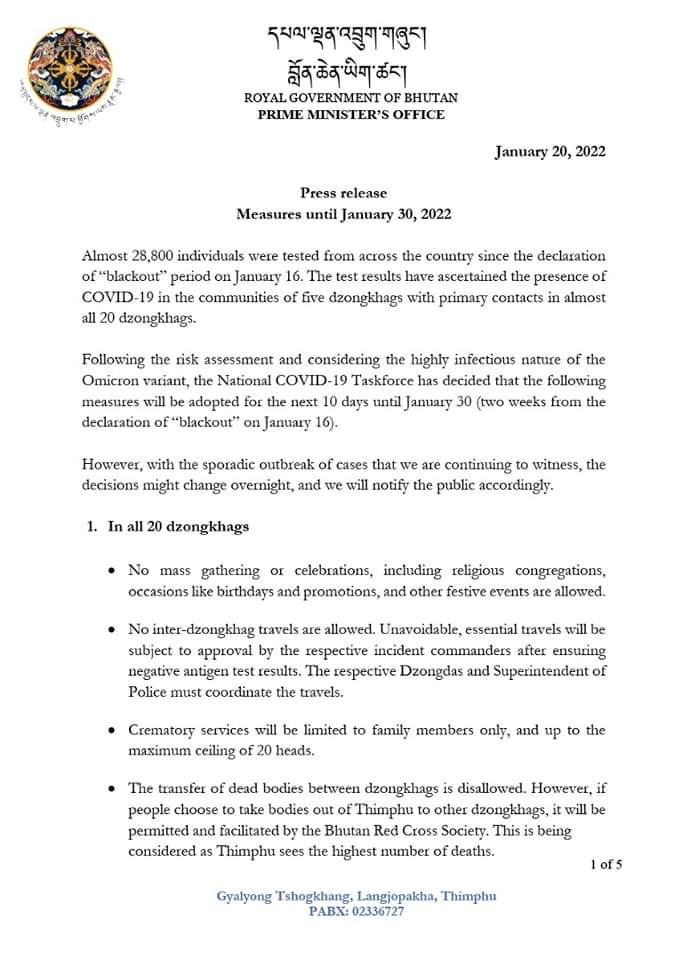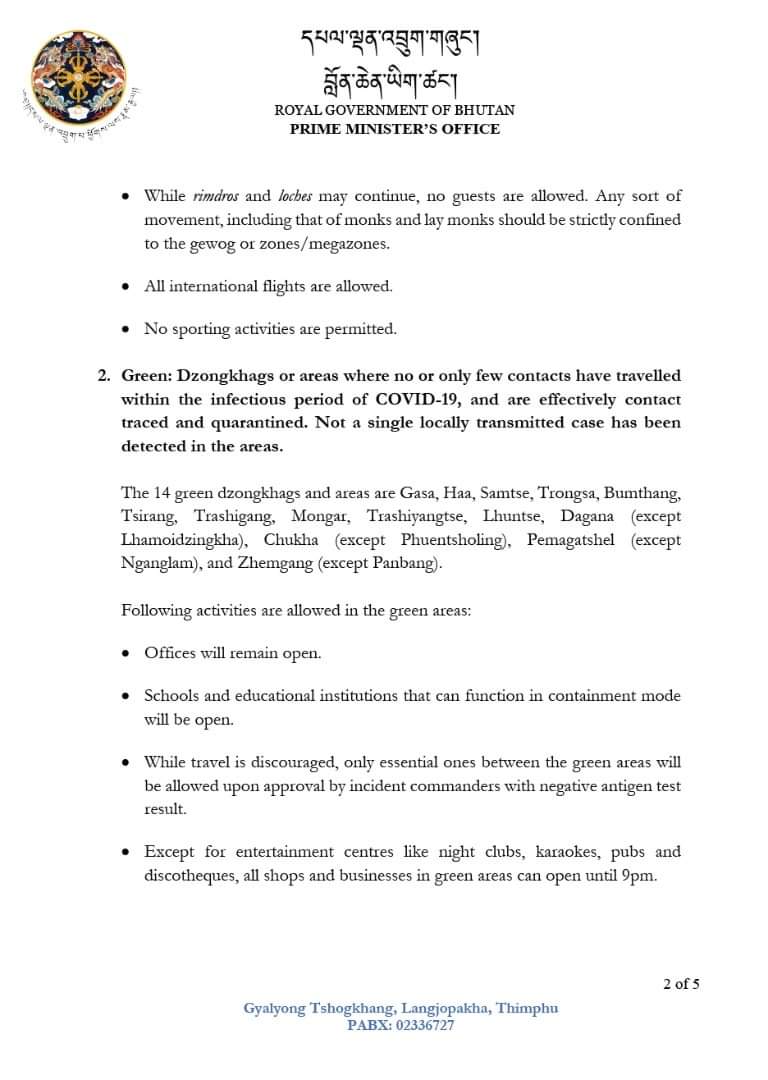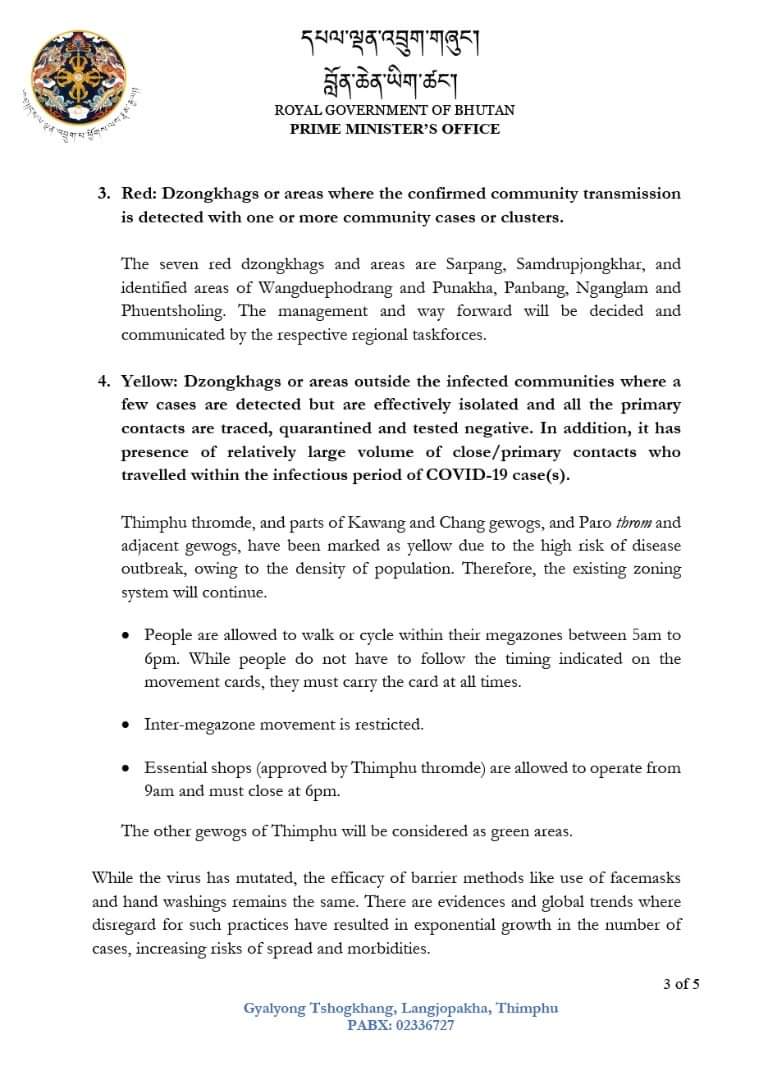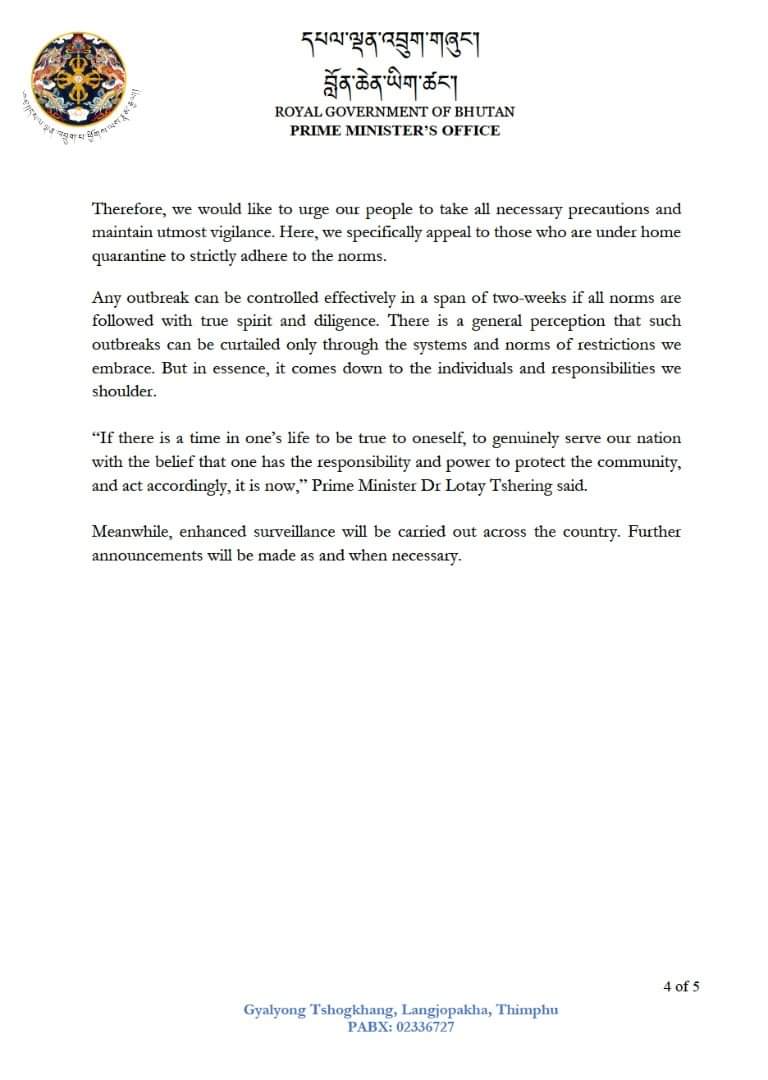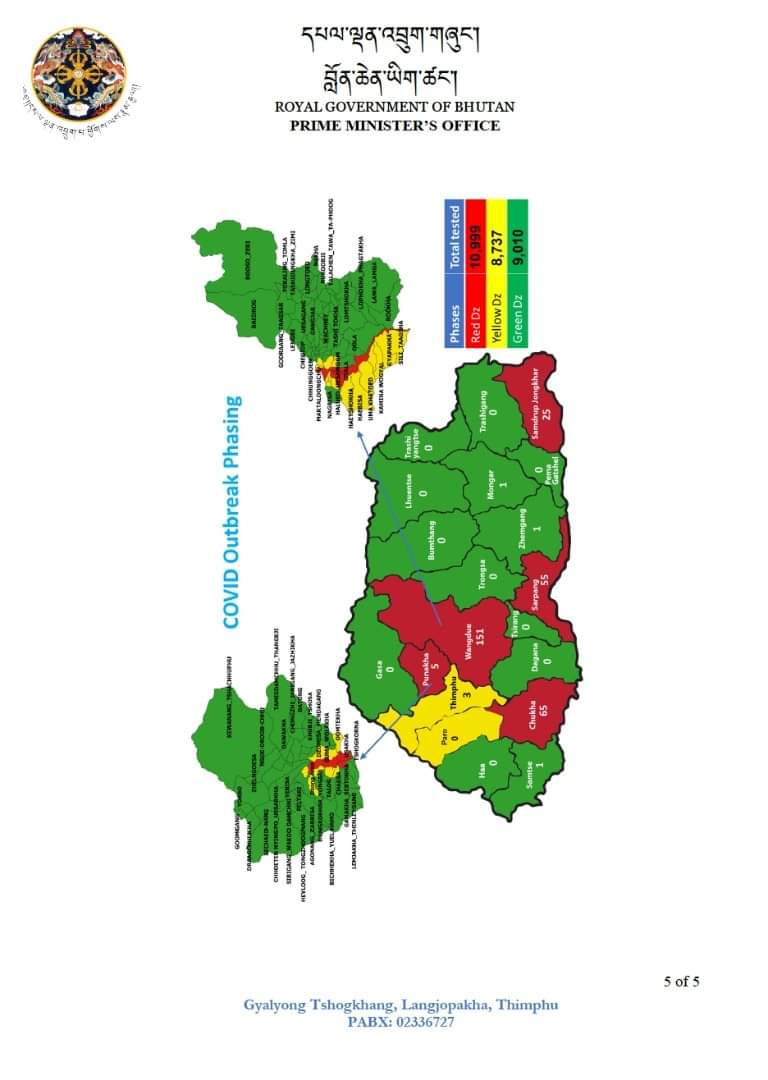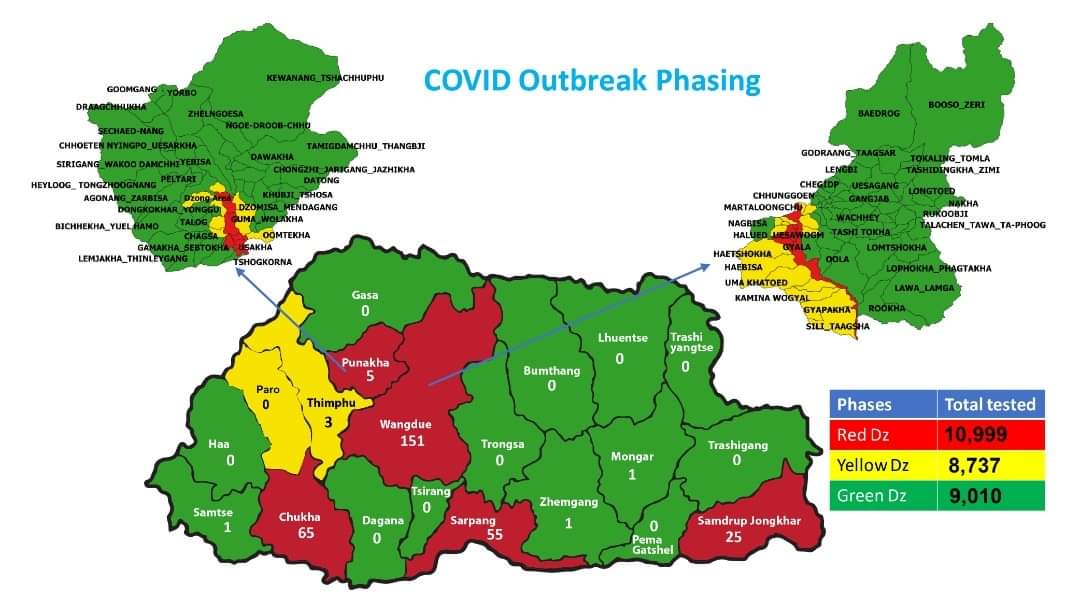January 20, 2022:
𝐏𝐫𝐞𝐬𝐬 𝐫𝐞𝐥𝐞𝐚𝐬𝐞
𝐌𝐞𝐚𝐬𝐮𝐫𝐞𝐬 𝐮𝐧𝐭𝐢𝐥 𝐉𝐚𝐧𝐮𝐚𝐫𝐲 𝟑𝟎, 𝟐𝟎𝟐𝟐
Almost 28,800 individuals were tested from across the country since the declaration of “blackout” period on January 16. The test results have ascertained the presence of COVID-19 in the communities of five dzongkhags with primary contacts in almost all 20 dzongkhags.
Following the risk assessment and considering the highly infectious nature of the Omicron variant, the National COVID-19 Taskforce has decided that the following measures will be adopted for the next 10 days until January 30 (two weeks from the declaration of “blackout” on January 16).
However, with the sporadic outbreak of cases that we are continuing to witness, the decisions might change overnight, and we will notify the public accordingly.
1. In all 20 dzongkhags
• No mass gathering or celebrations, including religious congregations, occasions like birthdays and promotions, and other festive events are allowed.
• No inter-dzongkhag travels are allowed. Unavoidable, essential travels will be subject to approval by the respective incident commanders after ensuring negative antigen test results. The respective Dzongdas and Superintendent of Police must coordinate the travels.
• Crematory services will be limited to family members only, and up to the maximum ceiling of 20 heads.
• The transfer of dead bodies between dzongkhags is disallowed. However, if people choose to take bodies out of Thimphu to other dzongkhags, it will be permitted and facilitated by the Bhutan Red Cross Society. This is being considered as Thimphu sees the highest number of deaths.
• While rimdros and loches may continue, no guests are allowed. Any sort of movement, including that of monks and lay monks should be strictly confined to the gewog or zones/megazones.
• All international flights are allowed.
• No sporting activities are permitted.
2. Green: Dzongkhags or areas where no or only few contacts have travelled within the infectious period of COVID-19, and are effectively contact traced and quarantined. Not a single locally transmitted case has been detected in the areas.
The 14 green dzongkhags and areas are Gasa, Haa, Samtse, Trongsa, Bumthang, Tsirang, Trashigang, Mongar, Trashiyangtse, Lhuntse, Dagana (except Lhamoidzingkha), Chukha (except Phuentsholing), Pemagatshel (except Nganglam), and Zhemgang (except Panbang).
Following activities are allowed in the green areas:
• Offices will remain open.
• Schools and educational institutions that can function in containment mode will be open.
• While travel is discouraged, only essential ones between the green areas will be allowed upon approval by incident commanders with negative antigen test result.
• Except for entertainment centres like night clubs, karaokes, pubs and discotheques, all shops and businesses in green areas can open until 9pm.
3. Red: Dzongkhags or areas where the confirmed community transmission is detected with one or more community cases or clusters.
The seven red dzongkhags and areas are Sarpang, Samdrupjongkhar, and identified areas of Wangduephodrang and Punakha, Panbang, Nganglam and Phuentsholing. The management and way forward will be decided and communicated by the respective regional taskforces.
4. Yellow: Dzongkhags or areas outside the infected communities where a few cases are detected but are effectively isolated and all the primary contacts are traced, quarantined and tested negative. In addition, it has presence of relatively large volume of close/primary contacts who travelled within the infectious period of COVID-19 case(s).
Thimphu thromde, and parts of Kawang and Chang gewogs, and Paro throm and adjacent gewogs, have been marked as yellow due to the high risk of disease outbreak, owing to the density of population. Therefore, the existing zoning system will continue.
• People are allowed to walk or cycle within their megazones between 5am to 6pm. While people do not have to follow the timing indicated on the movement cards, they must carry the card at all times.
• Inter-megazone movement is restricted.
• Essential shops (approved by Thimphu thromde) are allowed to operate from 9am and must close at 6pm.
The other gewogs of Thimphu will be considered as green areas.
While the virus has mutated, the efficacy of barrier methods like use of facemasks and hand washings remains the same. There are evidences and global trends where disregard for such practices have resulted in exponential growth in the number of cases, increasing risks of spread and morbidities.
Therefore, we would like to urge our people to take all necessary precautions and maintain utmost vigilance. Here, we specifically appeal to those who are under home quarantine to strictly adhere to the norms.
Any outbreak can be controlled effectively in a span of two-weeks if all norms are followed with true spirit and diligence. There is a general perception that such outbreaks can be curtailed only through the systems and norms of restrictions we embrace. But in essence, it comes down to the individuals and responsibilities we shoulder.
“If there is a time in one’s life to be true to oneself, to genuinely serve our nation with the belief that one has the responsibility and power to protect the community, and act accordingly, it is now,” Prime Minister Dr Lotay Tshering said.
Meanwhile, enhanced surveillance will be carried out across the country. Further announcements will be made as and when necessary.
